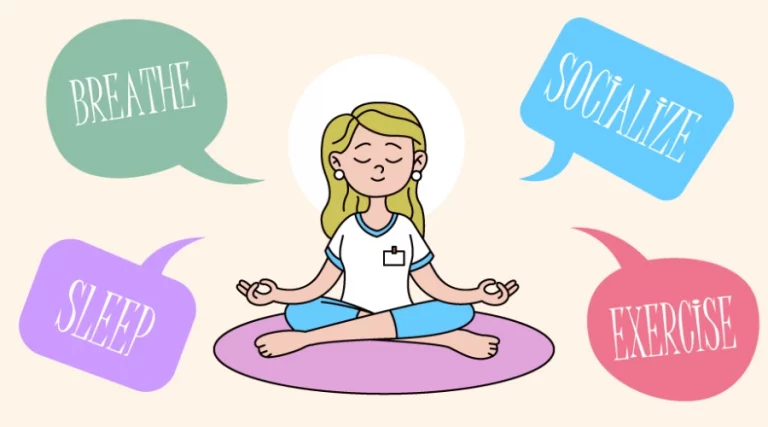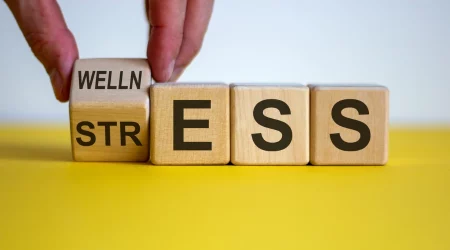Stress can be an all-consuming force, affecting our day-to-day lives and impacting our mental and physical health. But it doesn’t have to be this way. With the right strategies, you can learn to effectively manage stress and take control of your life again. Here are 10 simple strategies for effective stress management that can help you live a happier and healthier life. From establishing healthy habits to learning relaxation techniques, these strategies can help you manage your stress levels and improve overall wellbeing. With a bit of practice and commitment, you’ll soon be on your way to leading a more balanced and stress-free life.
10 simple strategies for effective stress management
Establish healthy habits
As the old saying goes, “Revert to what you were in your youth.” You can’t manage stress if you’re not taking care of yourself. To start managing stress and reducing your stress levels, put yourself first and make sure you’re establishing healthy habits and routines. Start by eating a healthy diet and getting plenty of exercise. Regular exercise is one of the best tools we have to manage stress, improve overall health, and increase our quality of life. It can relieve stress, boost mood, improve sleep and help us manage our stress better. Eating a healthy diet can also help reduce stress — a diet high in processed foods, sugar and caffeine can leave us feeling on edge and anxious.
Get organized
Another way to reduce stress is to get your life in order. Take steps to organize yourself, your home and your work schedule — it’ll help reduce your stress levels and give you a greater sense of control. Getting your life in order also gives you more time and energy for the things you love, and it helps you avoid burnout. You can start by creating a to-do list, scheduling your day, making your home a more peaceful space, and decluttering. These simple strategies can help give you a greater sense of control over your life and leave you feeling less stressed out.
Prioritize your tasks
When you’re feeling stressed, it’s easy to let everything pile up. Try to prioritize your tasks — especially the ones that are urgent and important — and make sure you’re taking care of the things that need to be done. This will help reduce your stress levels and leave you feeling more in control. It’s not always easy to prioritize your tasks, especially when you’re super busy. You can start by looking at your to-do list and asking yourself which tasks are urgent and which tasks aren’t important. You can even try using the 2-minute rule — if a task can be done in two minutes or less, do it immediately. This will help you clear your plate, leaving you feeling less stressed and more in control of your schedule.
Take regular breaks
Taking regular breaks is essential — especially when you’re feeling stressed out. It’s important to schedule time away from your desk, and it’s also important to take regular breaks while you’re working. Taking a break every 90 minutes or so can help reduce your stress levels and improve your overall productivity. Try taking a walk outside, meditating, doing yoga, or doing something completely different — like reading a book or chatting with a friend. This will leave you feeling refreshed and energized and can help you avoid burnout.
Practice relaxation techniques
Another great way to reduce your stress levels is to practice relaxation techniques. There are a number of different relaxation techniques, including meditation, guided imagery, breathing exercises, and yoga. And even though these may sound really difficult or complicated, they’re not. Meditation, for example, is an incredibly simple and effective relaxation technique that has a ton of benefits. Studies have shown that meditation can help reduce stress and anxiety, improve focus, boost self-esteem and self-awareness, improve our mood, and even help us sleep better.
Exercise regularly
Regular exercise is one of the best ways to reduce stress and improve your overall health. But it’s important to choose an exercise routine that fits into your lifestyle and that you actually enjoy. Start by making a list of activities you enjoy and find ways to integrate exercise into your daily life. Try walking to work, parking further away from your destination, riding your bike to the grocery store, or taking the stairs instead of the elevator. These small steps can make a huge difference and help you stay active while managing stress.
Get enough sleep
Poor sleep is a major culprit in stress, anxiety and mental health issues. Unfortunately, stress can disrupt your sleep — and not getting enough sleep can increase your stress levels and make you more susceptible to mental health issues. Try to go to sleep and wake up at the same time each day, avoid caffeine and screen time before bed, and make sure your environment is as sleep-friendly as possible. This will help you sleep better and feel less stressed.
Learn to be assertive
We all have bad days — and sometimes, our emotions can get the better of us. But there are ways to deal with our emotions and frustrations and ways of expressing ourselves assertively. Being assertive and communicating your needs and desires without being aggressive is an essential skill to learn. When you’re feeling stressed, it’s easy to let your emotions take over and lash out at others. Being assertive will help you communicate your needs in a healthy, non-aggressive way. This will help reduce your stress levels and leave you feeling more in control.
Seek help when needed
Sometimes, stress can become so overwhelming that it can have a negative impact on our mental and physical health. In these situations, it’s important to seek help — especially when you feel like your stress levels are getting out of control. Talking to a therapist is a great way to get help and reduce your stress levels. A therapist can help you unpack your feelings and gain a new perspective on your life. They can also provide you with strategies and tools that can help you manage your stress levels and improve your overall wellbeing.
Develop healthy coping skills
As you learn to manage your stress levels, it’s important to develop healthy coping skills. This will help you deal with difficult emotions and challenging situations in a more positive and productive way. When we’re stressed, it’s easy to dive into harmful habits like eating unhealthy foods, drinking too much alcohol, or spending too much time online. But these are not healthy coping skills and they will only exacerbate your stress levels. Start by making a list of healthy coping skills and make sure you’re regularly practising them. These simple strategies can help you start to manage your stress levels and improve your overall wellbeing. It takes practice and commitment, but with these tools in your toolkit, you can start to take control of your life again and reduce your stress levels.





